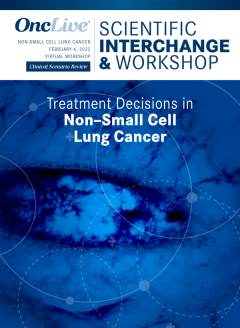
Dr. Heyman on the ALPINE Trial in CLL
Benjamin Heyman, MD, discusses the phase 3 ALPINE trial in chronic lymphocytic leukemia.
Benjamin Heyman, MD, hematologist, medical oncologist, the University of California San Diego, discusses the phase 3 ALPINE trial (NCT03734016) in chronic lymphocytic leukemia (CLL).
The ALPINE trial compared the overall response rate of zanubrutinib (Brufkinsa) vs ibrutinib (Imbruvica) in patients with relapsed/refractory CLL.
ALPINE demonstrated zanubrutinib improved progression-free survival (PFS) vs ibrutinib in the head-to-head comparison, Heyman says. This was notable because previous trials comparing ibrutinib and acalabrutinib (Calquence) did not demonstrate a PFS benefit with either agent.
Moreover, the safety profile of zanubrutinib should be considered when deciding on which BTK inhibitor to administer to patients with CLL, Heyman continues. Zanubrutinib is associated with a lower incidence of cardiovascular adverse effects, specifically atrial fibrillation, Heyman explains. However, zanubrutinib carries a higher risk of cytopenia and neutropenia, Heyman adds.
If zanubrutinib receives FDA approval for the treatment of patients with CLL, it will be another beneficial treatment option when considering the use of a BTK inhibitor, Heyman concludes.










































